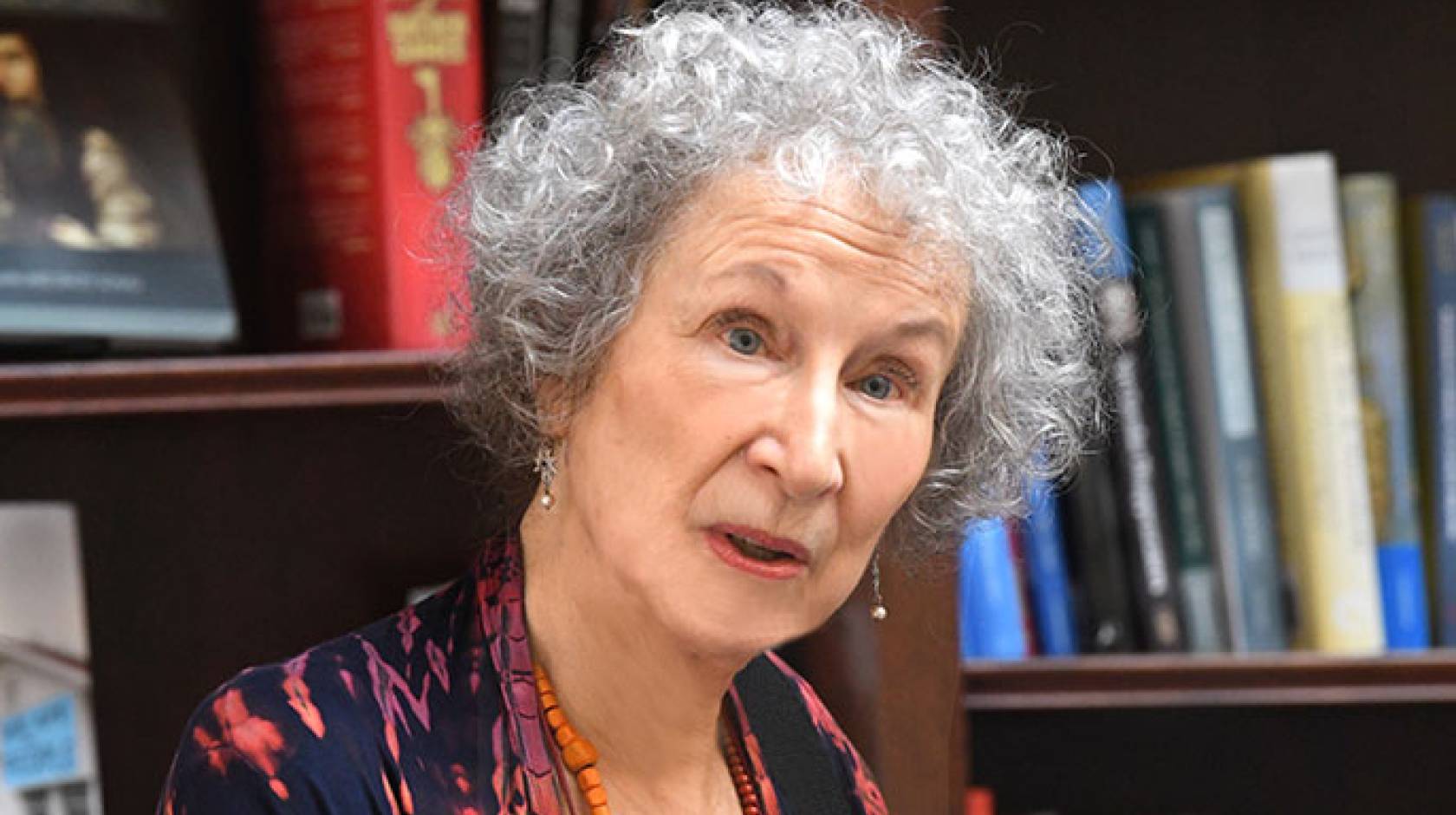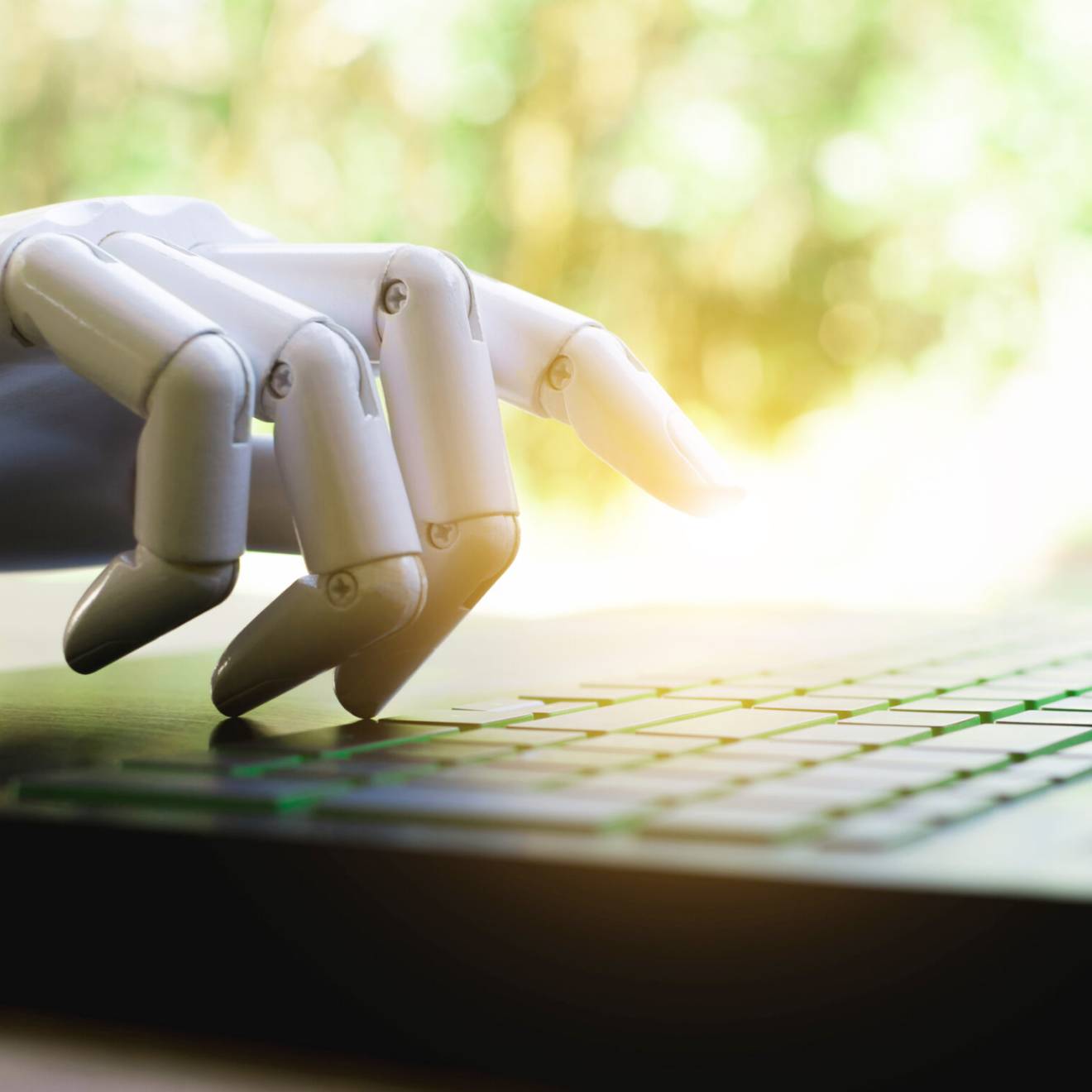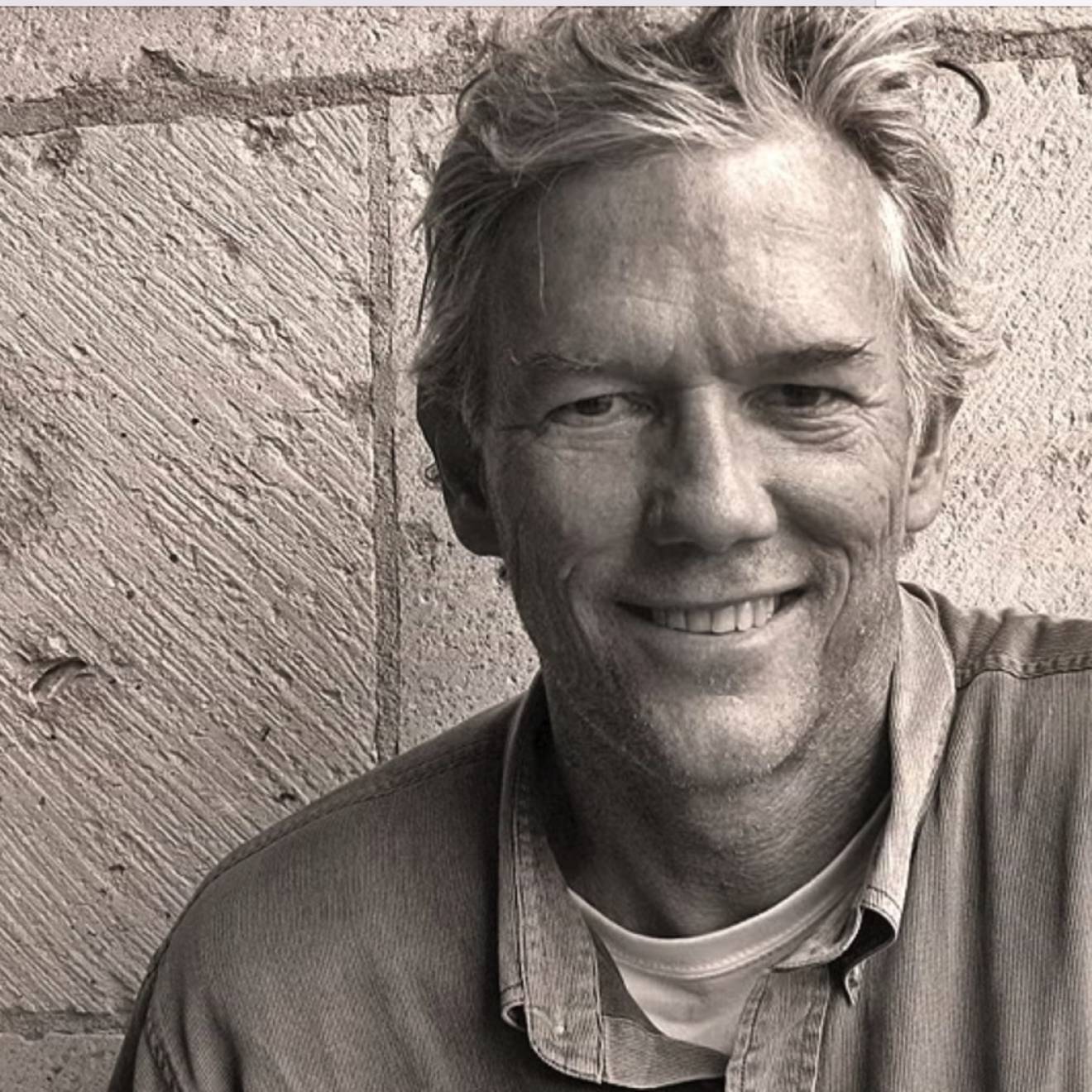Anne Brice, UC Berkeley

Canadian author Margaret Atwood doesn’t like being called a soothsayer. “Anyone who says they can predict the future is … not telling the truth,” she says.
But like it or not, it’s a label she’s been given since the revival of her 33-year-old dystopian novel “The Handmaid’s Tale” was made into a popular Hulu TV series that aired just months after the election of Donald Trump as president. The story is set in near-future New England in a totalitarian and theocratic state that has overthrown the U.S. government. Because of low reproduction rates, certain fertile women are forced to become Handmaids to bear children for elite couples.
Berkeley News sat down with Margaret Atwood for a few minutes before her appearance on campus last week to talk about her book’s recent revival and how — in her view, and that of many of the book’s fans — the Trump presidency is bringing the U.S. a step closer to becoming her fictional Republic of Gilead.
When I heard that I was going to interview Margaret Atwood, I was instantly nervous. To be fair, I get nervous a lot. About a lot of things. But interviewing the famous Canadian author who wrote “The Handmaid’s Tale”? Ahhh!
But meeting her in person, I was actually struck by how… calming her presence was. She was focused and thoughtful, and jumped from subject to subject with ease. One minute, she’d be talking about her fascination with astrology (she’s a Scorpio, by the way) and the next, she’d be discussing the atrocities of war without missing a beat.

Credit: Peg Skorpinski/UC Berkeley
“The Handmaid’s Tale” was first published in 1985 in Canada and in 1986 in the U.S. Atwood says the response that the novel received back then was different from today’s.
“I think in ‘85 and ‘86, there were still some people who thought, ‘This is improbable,'” she said. “Or they thought, ‘Time only ever moves forward, things are just going to get better.’ That has never been true in history and there is no particular reason why it would be true now. And it’s also true that things can change a lot faster than you think. So, there was a disconnect between what was in the book and what people thought could actually happen.”
I ask, “So, in 1985 and ‘86, people were saying, “This couldn’t happen.” Now, are more people saying, “Oh, this could definitely happen?”
“Oh, yes, no question about,” said Atwood. “Well, there are attempts being made to have it happen. You’re seeing a many-pronged attack on the free press — that’s one of the things totalitarianisms always go for, is they seize control of the communications system. So, the free press. Women’s control over their own bodies… when you see that happening. The other piece of that is do away with any regulations over environmental controls.”

Credit: Peg Skorpinski/UC Berkeley
After Trump’s election in 2016, sales of “The Handmaid’s Tale” skyrocketed and at the Women’s March following inauguration, protesters dressed up in the scarlet robes and white bonnets worn by the Handmaids, holding signs that said, “Make Margaret Atwood fiction again.”
Although Atwood has become the kind of unofficial writer for the anti-Trump resistance, she says she doesn’t like being called a soothsayer. “Anybody who says they can predict the future is … not telling the truth,” she said. “It is quite unpredictable. People go, “Oh, Margaret, you’re such a prophet.” And I say, “Actually, no I’m not.” Because nobody can be that. There are too many variables.”
One thing that I didn’t realize before I started doing research for this interview is that everything that happens in the book has happened or is happening someplace in the world. The same goes for the TV series, for which Atwood is a consulting producer.

She says that when she was writing the book in 1984, she didn’t want people thinking she was just coming up with this violent, sadistic society all on her own. “It’s been really important to me because if I hadn’t done that back in ’84 or ’85, people would have said, ‘You have a really twisted, evil imagination to make all this up.’ So, I had to be able to say, ‘I did not make this up. People do this. People have done this.’ And particularly in circumstances where power is absolute, they do it more. Because there is no check.”
Atwood was born in 1939 at the beginning of World War II. She says her interest in writing about dystopias is rooted in her interest in world history and the many failed attempts people have made to create a perfect society — something that leaders think they’re doing in “The Handmaid’s Tale.”

“I studied utopia/dystopia quite in-depth a long time ago,” she said. “People set out to set up these colonies. The Puritans themselves were a utopian experiment. They were going to set up God’s kingdom on Earth. Good luck with that.”
It’s an ongoing human preoccupation, she says, that’s sort of built into Christianity. “In the 19th century, it was looking possible because they’d made all of these advances,” she said. “They discovered germs. They discovered vaccination. They discovered steam power, they discovered cheap goods for a lot more people. Some of the things they did were not so good, including giving laudanum for babies, but never mind about that.”
But then came along the 20th century, not a good time for utopias, she says. All around the world, people set out to create these supposed perfect societies and it always ended up being the exact opposite. Atwood lists a few off the top of her head: World War I, the Soviet Socialist Republics, Stalin’s purges, World War II and the Nazis, Ceausescu’s Romania, Pol Pot in Cambodia, North Korea…

Credit: Peg Skorpinski/UC Berkeley
“Having been born when I was, I lived through a bunch of this,” she said. “So, no guarantees. No guarantees that things aren’t going to go tits up, quite rapidly.”
Recently, fans have been looking to Atwood for guidance, hope — for her to tell them that we won’t actually be living in the Republic of Gilead in the near future.
She says there is hope — without hope, we wouldn’t get up in the morning.
She encourages everyone to vote in the next election and stay informed through reputable news media. And to start paying attention to the planet — especially the ocean, which provides the earth most of its oxygen. No ocean, no people. And without people, it won’t matter what our social policy is.
Get the full podcast transcript here.
Subscribe to the Fiat Vox podcast: Apple Podcasts, Stitcher, Google Play, TuneIn, Pocket Casts, Spreaker or Blubrry.

